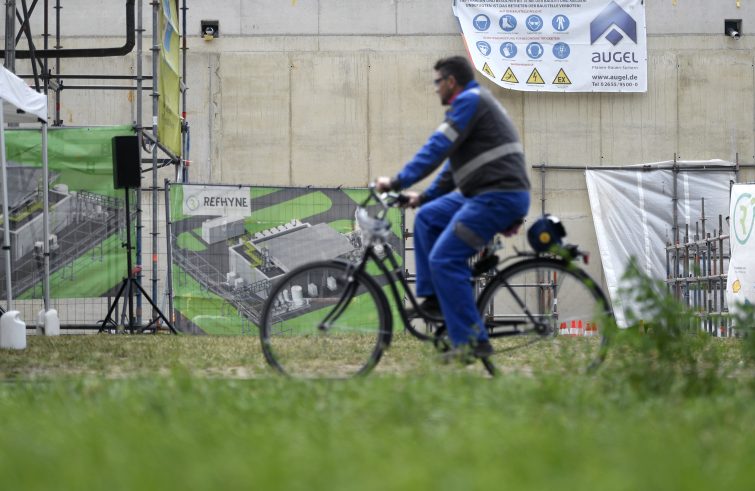
The coronavirus pandemic has taught us many lessons. Most of all, we learned that cooperation is highly rewarding. Cooperation proved crucial for the protection of workers and their jobs, for the survival of enterprises and for the welfare of people and society. Priority must be given to citizens, rather than to the economy. Yet looking ahead to a post- pandemic recovery, how can we ensure that workplaces will improve the quality of life of their workers – thereby ensuring fair wages, a decent standard of living and fostering motivation in the future?
In the past, this has not always been the case. Low wages, precarious jobs, poor working conditions and false self-employment have been the norm in some sectors of EU economy for the past decades. Wages stagnated, and a growing number of households have been struggling to put food on the table, keep their homes warm and pay their energy bills.
The percentage of working poor, i.e. workers at-risk-of-poverty, increased in most EU Member States between 2010 and 2019, despite economic growth,
leaving approximately one in ten European workers below the at-risk-of-poverty threshold.
This state of affairs is unacceptable, not only to the European Trade Union Confederation and its affiliates, which represent the interests of workers, but also to the many forward-looking employers in UNIAPAC, Christian entrepreneurs who understand that fair wages are socially just and beneficial to growth, to demand, productivity and to society at large. Twenty-one EU countries have set national statutory minimum wages, but in most cases the wages are very low: below the poverty line. The European Union should support effective action to end this situation and to ensure that, where statutory minimum wages exist, they do not leave workers and their families in a state of poverty. Full-time workers should not have to choose between paying bills or eating. Everyone deserves a dignified life.
The Pandemic has forced citizens across Europe to reconsider the value of work and the vital contribution of caregivers, healthcare workers, transport and retail workers and many others whose safety has been at risk over the past months. Fair wages should reflect the dignity of work, the dignity of workers and the right of each worker to enjoy a fulfilling life.
Post-pandemic recovery is not only about returning to ‘normal.’ In fact it should involve a transformation of the European economy.
In May 2019 Pope Francis made an appeal for change and asked to imagine a different economy, one that “includes and does not exclude, humanises and does not dehumanise, cares for creation and does not devastate it”. The unfairness of the present system is undermining societal stability, giving rise to dangerous populist movements. Pope Francis called for a revolutionary transformation towards a more humane society, with people’s well-being and happiness at its heart.
Over the past year, we wore masks and got vaccinated also to protect others. People have accepted restrictions on their freedom for the greater good. Now we must act on what we have learned. When everyone leads a better life, society is more productive, thereby creating prosperity and wealth. Such wealth must be distributed in a fair and dignified manner. The time is ripe for entrepreneurs and politicians to reflect on ways of creating quality jobs, quality products and successful businesses. Decision-making and cooperation require courage. And courage is what is needed to ensure that the EU takes the necessary steps to move forward and become a fairer and more civilised place, where all wages are above a decency threshold.
One of the most successful ways to ensure that workers have a fair share in the wealth they create is for trade unions and employers to work together in negotiating wages and working conditions. Countries with a high proportion of employees covered by collective bargaining have also lower proportions of low-income workers, yet bargaining structures in many EU Member States have declined over the past years.
Employers determined to cooperate with their workers will recover from the pandemic more swiftly and will emerge stronger;
A level playing field, eliminating competition in terms of unfair wages, will prevent otherwise unethical companies from exploiting job demand and from causing a downward spiral of below-poverty-line wages. No one should be excluded from the right to a decent wage: fair wages result in a more loyal and productive workforce. Similarly, trade unions’ role and engagement are critical to ensuring companies’ long-term sustainability and success. Trade unions will also need to be involved in the creation of systems that ensure fair pay for workers and their participation in productivity growth. Companies should promote teamwork, with shared interests and benefits agreed through successful negotiation. The latter may even be facilitated by shared interests.
European governments and employers must seize the opportunity to act responsibly to improve people’s lives,
so that all workers can make ends meet, pay the rent and put food on the table for themselves and for their families. Adequate minimum wages are very important to ensure a dignified work and life for all workers. But they are not enough. A dignified wage is one that provides for the cost of living, the education of children, full participation in society and personal development. Pay should be fair and reflect the workers’ contribution to the company’s profits.
(*)deputy general secretary of the European Trade Union Confederation – ETUC
(**)president of the Portuguese Chamber of Commerce and Industry and of the international board of the International Christian Union of Business Executives (UNIAPAC).









